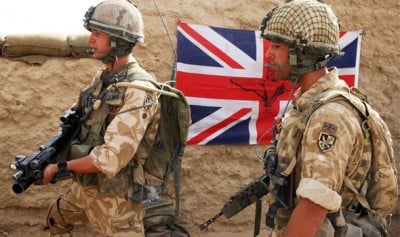London Attack: Terrorism, Other Type Street Violence or False Flag?

Each time violent incidents occur in Europe or America, they’re automatically called terrorism – despite no credible evidence proving it.
Wednesday’s incident in London left five dead, numerous others injured. Police lethally shot the alleged attacker. Dead men tell no tales.
Weeks earlier, Britain’s senior counterintelligence officer Mark Rowley said UK security services run more than 500 simultaneous terror-related investigations, resulting in numerous arrests, solely on the basis of suspicions, not credible evidence of wrongdoing or intent.
For years, state-owned BBC and other UK media hyped the threat of Islamic terrorism.
Rowley claimed authorities foiled over a dozen potential terrorist attacks in recent years through so-called public tips – failing to explain how criminality can be detected if no crime occurred.
Post-9/11, numerous headline-making, high-profile violent incidents in America, Britain, France, Belgium, Germany, Spain, and Norway were automatically called terrorist attacks.
Or were they state-sponsored false flags perpetrated to hype fear? Hysteria replaced reason. Innocent patsies were falsely blamed – part of a diabolical plot to advance interests harming millions domestically and abroad.
Crackdowns on freedom replaced rule of law protections. Imperial wars were launched, ongoing in multiple theaters, Muslims demonized as a convenient enemy of choice.
Hyped fear continues gripping Europe and America, heightened by Wednesday’s London attack, 200 meters from Parliament Square.
A virtual state of emergency exists in central London, plans to extend it city-wide, perhaps to be followed in other European cities beyond repressive measures already in place.
UK media said London police are treating Wednesday’s incident as terrorism. Westminster is on lockdown. Its underground station was closed, nearby streets cordoned off to traffic. Security forces are deployed in force.
At one point on Wednesday, police armed with guns and protective shields marched into parliament, an extraordinary surreal action.
London’s Guardian said the alleged attacker was known to counterterrorism officials, “his connections and associates” being investigated.
Without corroborating evidence, Mark Rowley called the attacker’s motivation “Islamist related,” inspired by ISIS, though most likely he was a “lone actor.”
Prime Minister Theresa May called the incident “sick and depraved,” adding Britain’s threat level remains severe.
“The location of this attack was no accident,” she blustered. “The terrorists chose to strike at the heart of our capital city where all nationalities, religions and cultures come together to celebrate the values of liberty, democracy and freedom of speech.”
Her hyperbole sounded pre-scripted. Unknown so far is whether Wednesday’s incident was terrorism as claimed, street violence unrelated to terrorism, or a state-sponsored false flag.
The incident’s high-profile nature, capturing world headlines, creates obvious suspicions about whether what occurred may have been other than what’s reported – especially given numerous false flags in Western cities in recent years.
Perhaps Wednesday’s London attack was the latest. The alleged perpetrator isn’t alive to explain.
Stephen Lendman lives in Chicago. He can be reached at [email protected].
His new book as editor and contributor is titled “Flashpoint in Ukraine: How the US Drive for Hegemony Risks WW III.”
http://www.claritypress.com/LendmanIII.html
Visit his blog site at sjlendman.blogspot.com.

